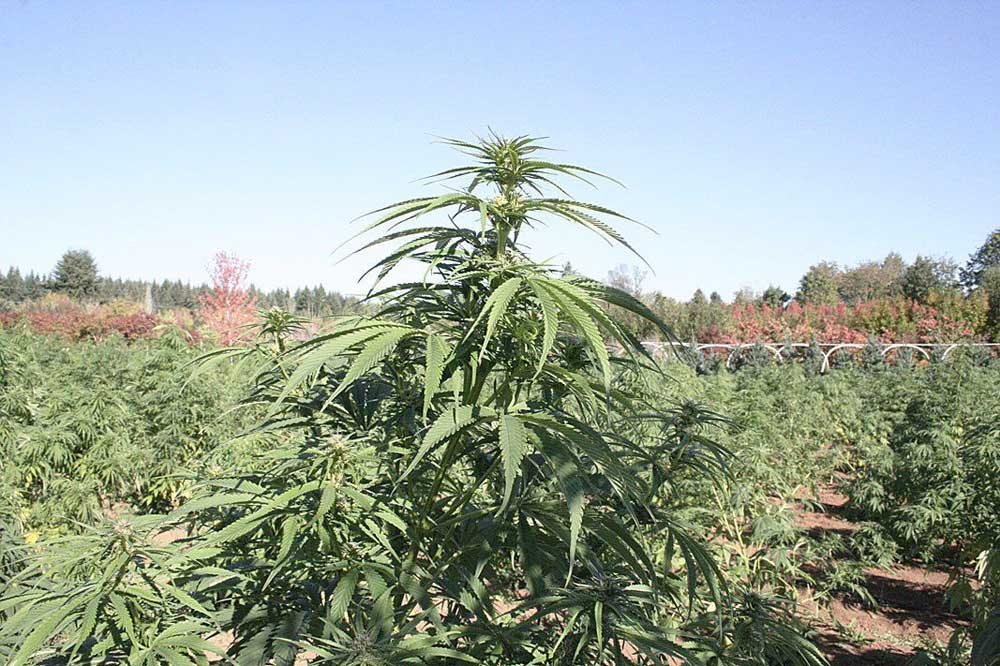$2.2 million hemp seed lawsuit reflects turbulent market
Published 4:30 pm Friday, February 4, 2022

- Hemp grows in a field. An Oregon hemp company claims that a Nevada farm violated a contract by refusing to accept delivery of $2.2 million worth of hemp seed.
An Oregon hemp company claims a Nevada farm violated a contract last year by refusing to accept delivery of $2.2 million worth of hemp seed.
Phylos Bioscience of Portland has filed a federal complaint seeking damages from Silver Lion Farms of Ely, Nev., for breach of contract, fraud and other claims.
Trending
The lawsuit alleges that Silver Lion Farms agreed in 2020 to buy 23 million hemp seeds of two varieties for roughly $3 million, which would be enough to plant nearly 1,000 acres.
After paying 25% of the contract price that year, Silver Lion Farms was supposed to pay for the remainder of the seed upon delivery in 2021, the complaint said.
Phylos Bioscience relied on the contract to buy hemp seeds from an Oregon company, the complaint said.
In April 2021, the Silver Lion Farms executives only accepted 4.3 million seeds of one variety but refused to take delivery of the rest, the complaint said.
The lawsuit claims that Silver Lion Farms executives falsely told a representative of Phylos Bioscience who made the delivery that they’d struck a deal to receive a smaller number of seeds.
The Nevada farm’s actions have infringed on the seed supplier’s plant patent and Phylos Bioscience is entitled to recover three times the amount of damages, as well as attorney fees, under federal law, according to the lawsuit.
Trending
Silver Lion Farms did not respond to requests for comment on the allegations.
Litigation over hemp contracts has flared up due to ongoing turbulence in the fledgling industry, said Beau Whitney, an economist who tracks the crop.
“I’ve seen an uptick in lawsuits,” Whitney said. “I would anticipate more and more lawsuits to occur rather than less and less.”
Whitney said he can’t comment on the specific dispute between Phylos Bioscience and Silver Lion Farms, but generally disagreements over contracts have been triggered by plunging prices for hemp biomass and extracts.
“There’s a massive oversupply of raw materials in the market,” he said.
Companies entered into contracts at price levels that no longer reflect the current market or business conditions in the hemp industry, Whitney said.
“People are not sure what to do when there’s a breach of contract,” he said. “In such a new industry, that accountability is starting to take shape, but it’s not quite there yet.”
Instead of basing contract terms on benchmark prices at the time of delivery, hemp contracts tended to make prices inflexible, Whitney said.
“That’s a sign of an immature market,” he said.
Part of the problem is that hemp lacks a regulated futures exchange, such as those that reflect fluctuating prices for corn, soybeans, wheat and other commodities, he said.
“That’s how it would normally run in an agricultural environment with sophisticated business people,” Whitney said.
Hemp seed suppliers are facing a particularly competitive market right now, since total U.S. hemp acreage fell by more than half last year, from 500,000 acres to 230,000 acres, he said.
“That’s also part of this dynamic, especially with seed suppliers,” whose “market opportunity” was basically cut in half, Whitney said.
However, the “dust will eventually settle” in the hemp industry and companies with strong business plans will be left standing, he said.
“A lot of people were going into this without having done due diligence on the market,” Whitney said. “The people who do that now are going to be the survivors.”
“People are not sure what to do when there’s a breach of contract. In such a new industry, that accountability is starting to take shape, but it’s not quite there yet.”
Beau Whitney, economist








